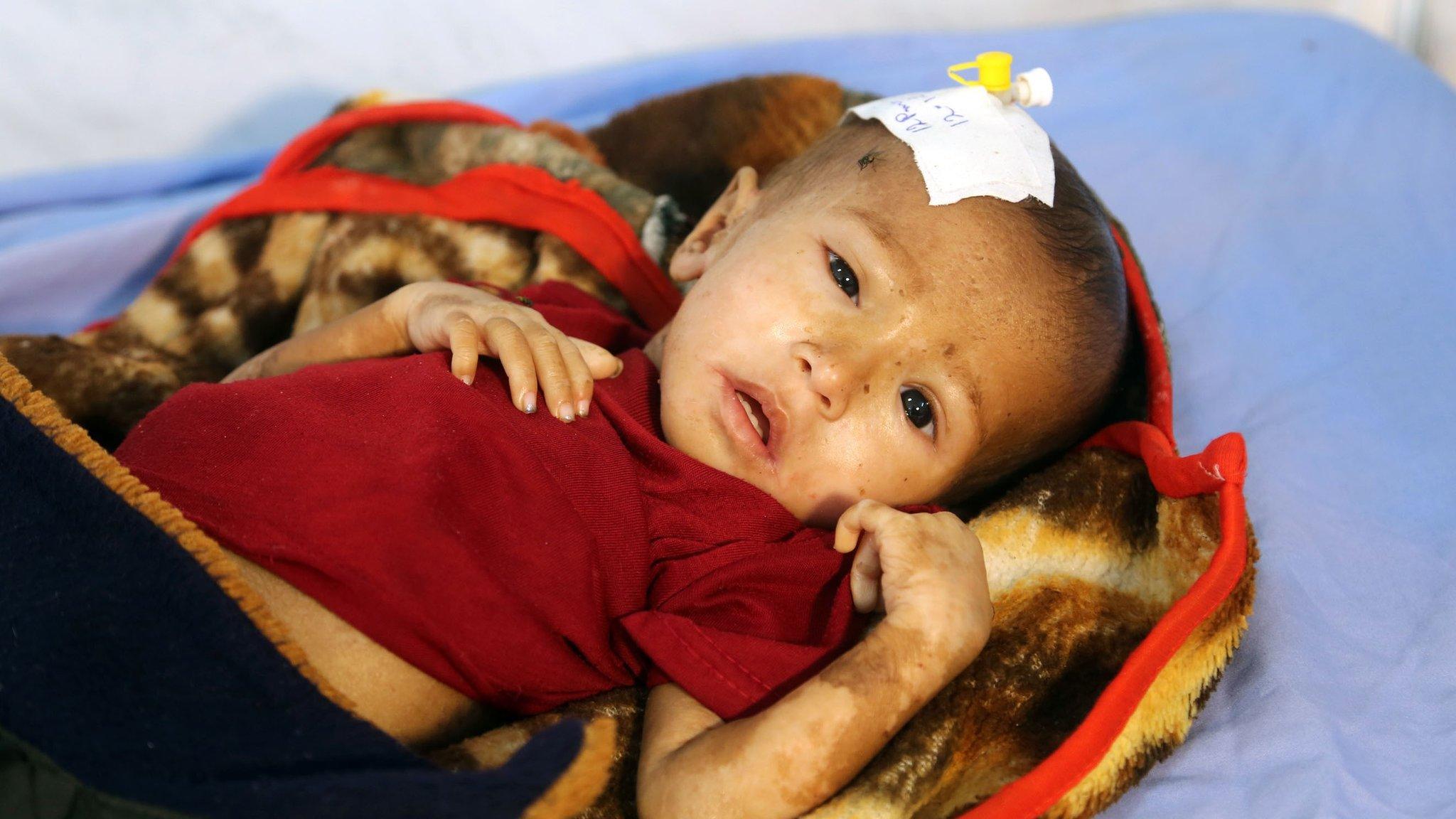Yemen crisis: Separatists seize government buildings in Aden
- Published
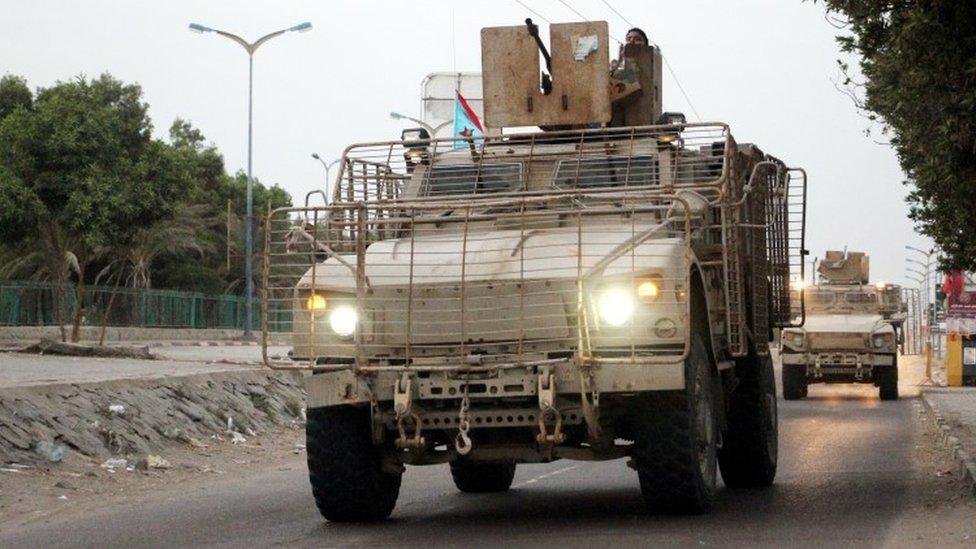
A rift has opened between two forces that were formerly on the same side
Separatists in southern Yemen have seized government buildings in the city of Aden amid fierce clashes with forces of President Abdrabbuh Mansour Hadi.
Prime Minister Ahmed bin Dagher has accused the separatists of mounting a coup.
Aden serves as a temporary base of the Hadi government, with Houthi rebels controlling the capital Sanaa.
Fighting subsided late on Sunday evening as both sides ordered their forces to stand down.
Government forces called on Yemen's Arab neighbours to intervene and help calm the situation.
Dozens of people are reported injured, and at least 10 people have died.
The development further complicates an already dire situation in Yemen, where millions need aid.
What's happening in Aden?
The modern state of Yemen was formed in 1990 from the merger of South Yemen and North Yemen, and separatist desires for an independent southern state have not gone away.
The separatists have been backing the government against the Houthis, but long-simmering tensions have flared in recent weeks, with the separatists accusing the government of corruption and discrimination.
Fighting broke out on Sunday after a deadline set by the separatists for Mr Hadi to dismiss Mr Dagher and his cabinet.
At least 10 people have been killed and eyewitnesses reported gunfire and explosions in several parts of the city.
Allow X content?
This article contains content provided by X. We ask for your permission before anything is loaded, as they may be using cookies and other technologies. You may want to read X’s cookie policy, external and privacy policy, external before accepting. To view this content choose ‘accept and continue’.
The southern separatists are backed by the United Arab Emirates (UAE), which is also part of the Saudi-led coalition fighting the Houthis.
Prime Minister Dagher called on the "decision maker" UAE to take action, warning that the clashes would advantage the Houthis.
President Hadi, who is based in Saudi Arabia, called for a ceasefire, while his government ordered loyalist troops back to their barracks.
Troops from both Saudi and the UAE - present in Aden when fighting erupted - did not intervene, reports said.
And in the rest of the country?
The Houthis remain in control of Sanaa and territory in the north and west.
They seized the capital in 2014, prompting the Saudi-led coalition to intervene on the side of the government.
Diphtheria is returning to Yemen as a result of the country's civil war
The years of conflict and a blockade imposed by the coalition have caused what the UN calls "the worst man-made humanitarian crisis of our time".
Three quarters of Yemen's population - 22.2 million people - need assistance, including 8.4 million people who are considered severely food insecure and at risk of starvation.
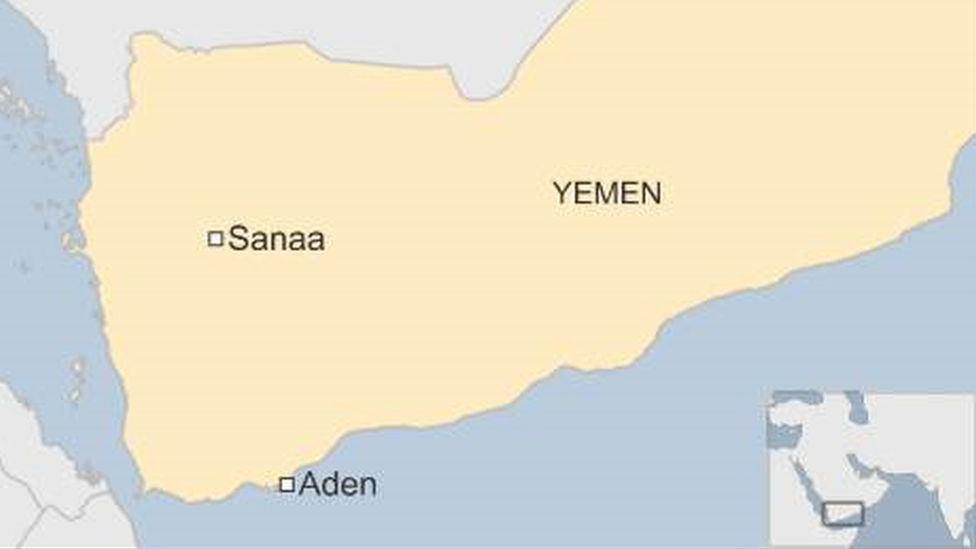
- Published14 April 2023
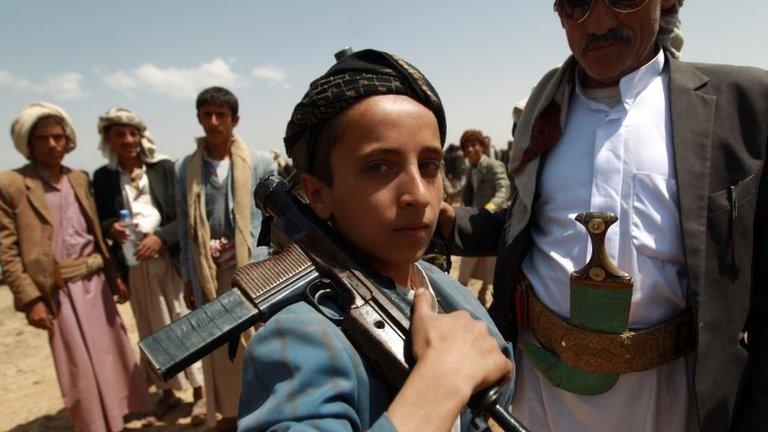
- Published22 December 2017
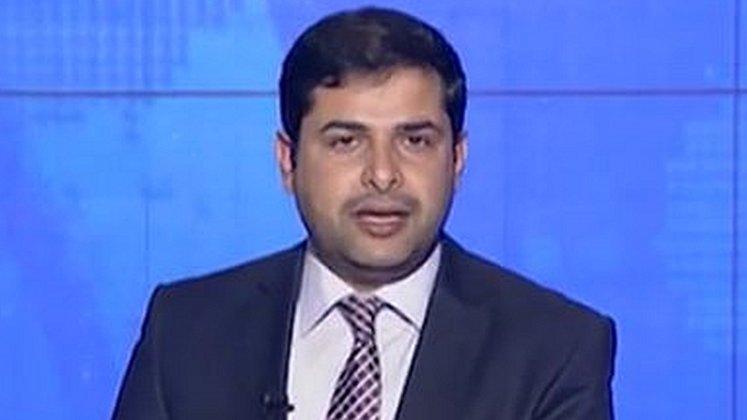
- Published13 February 2024
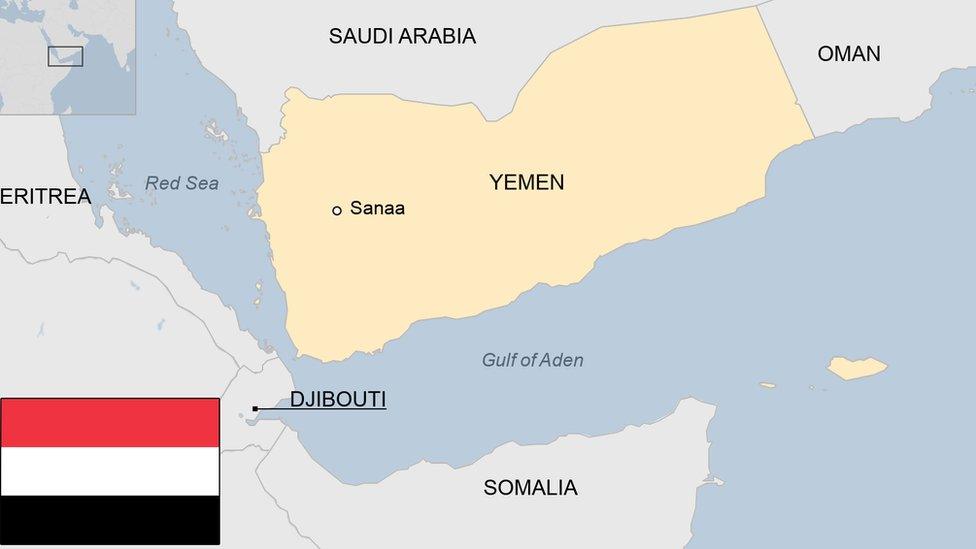
- Published22 January 2018
